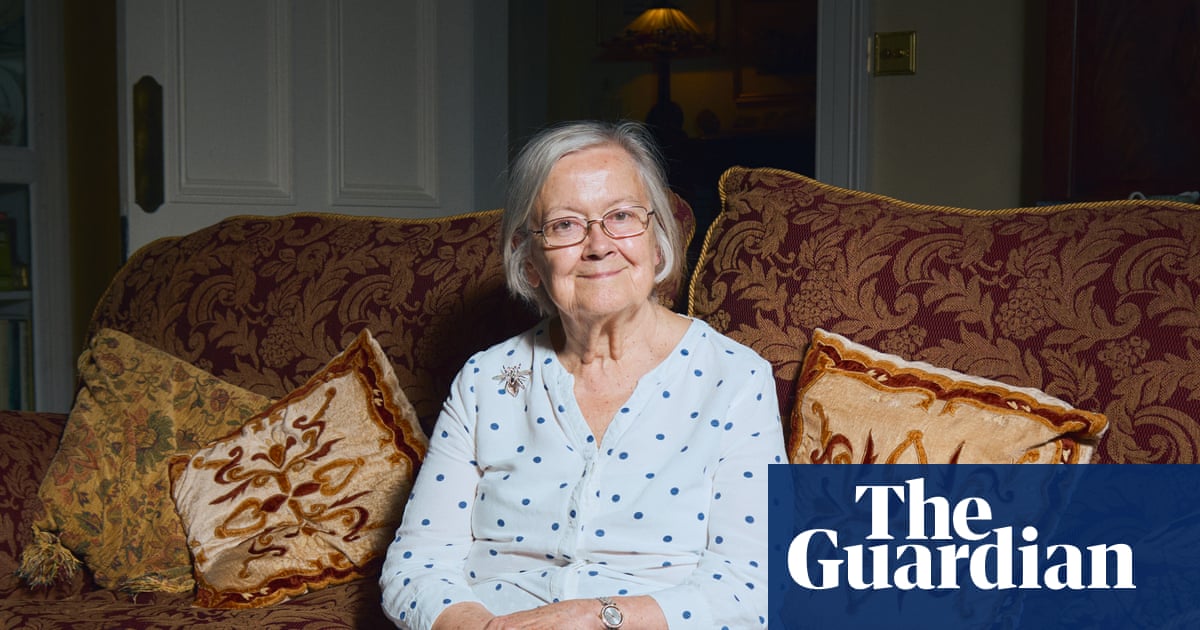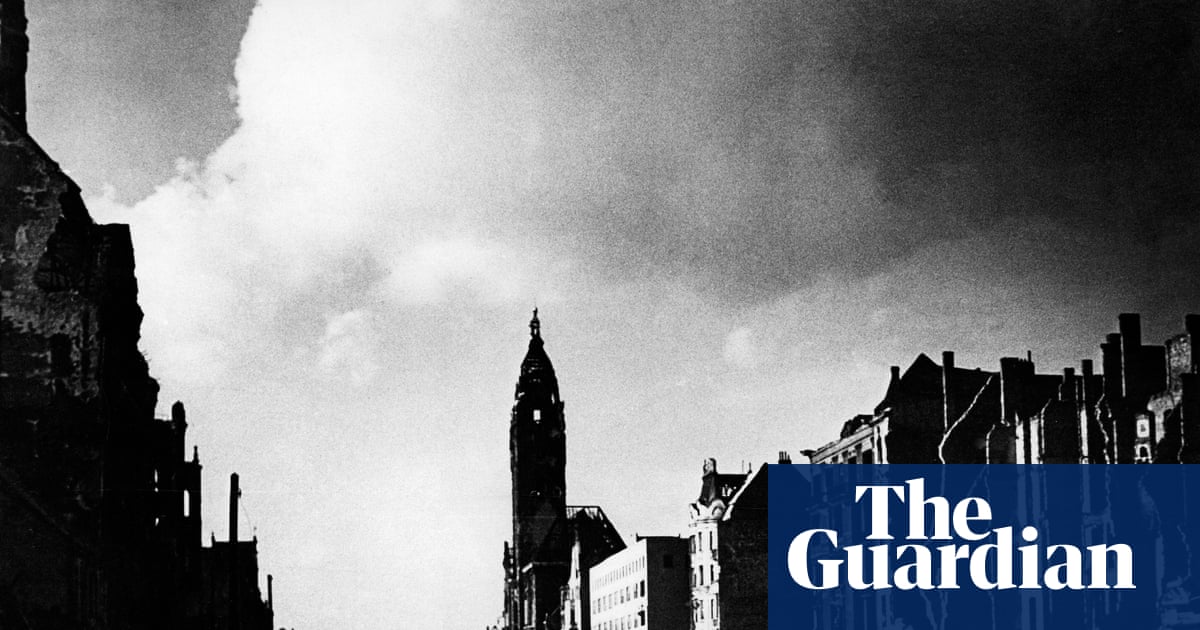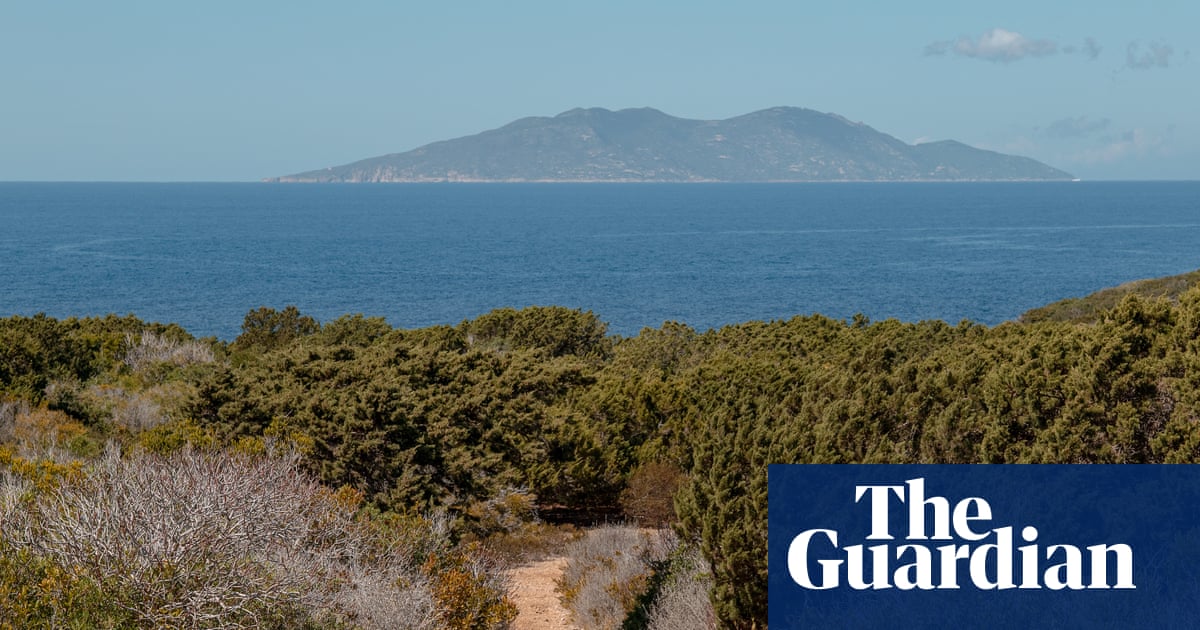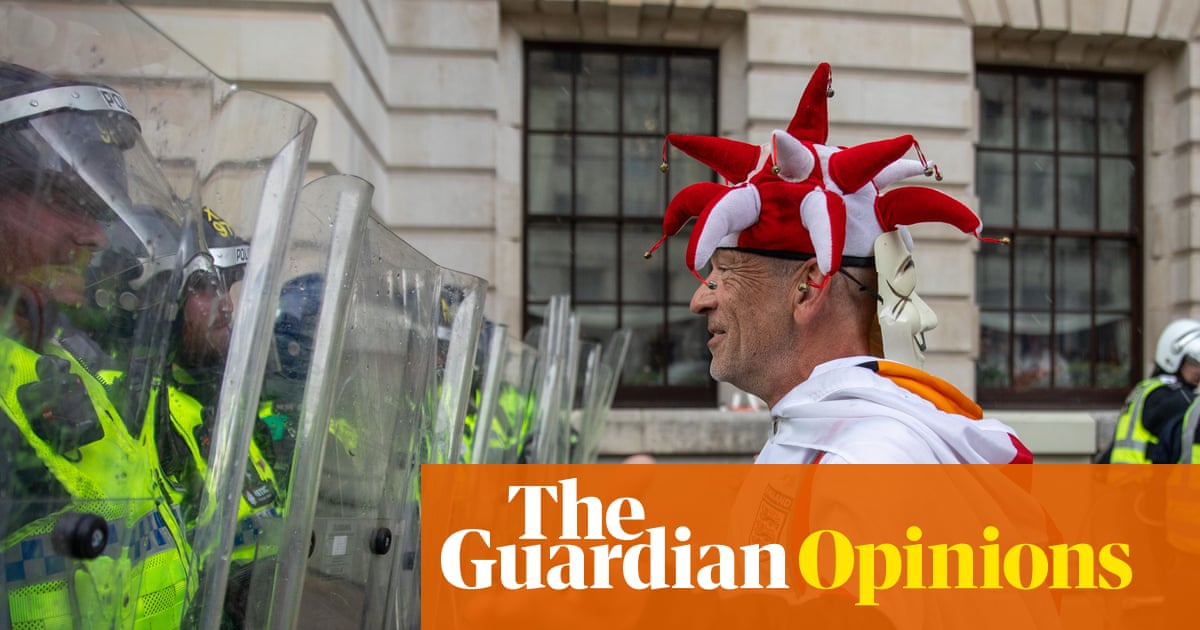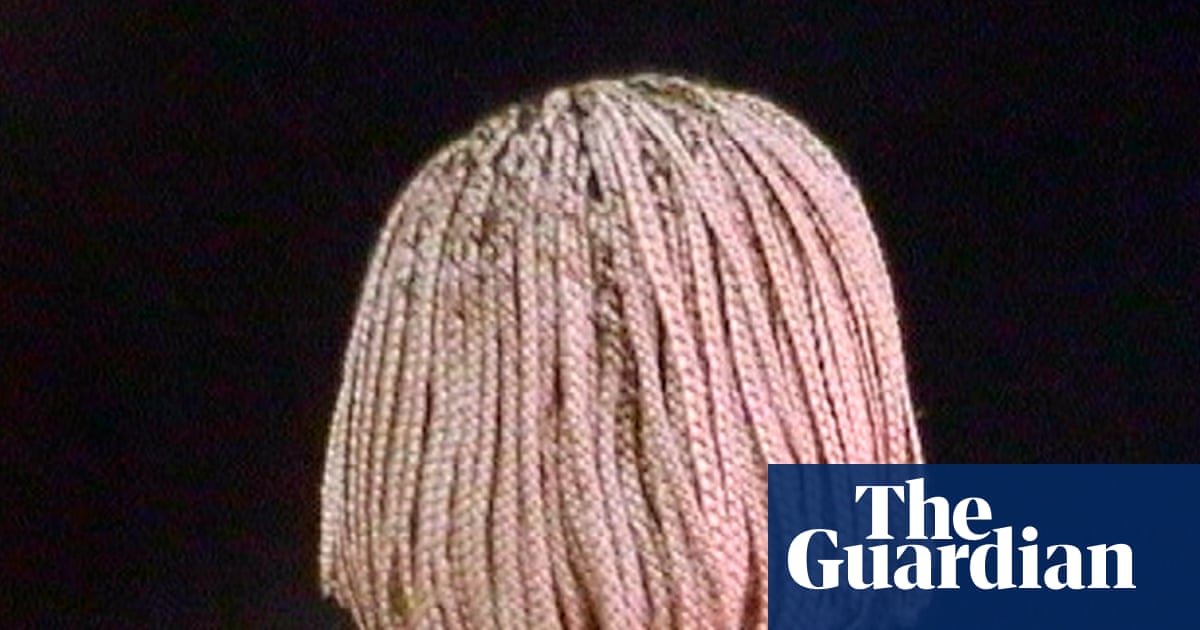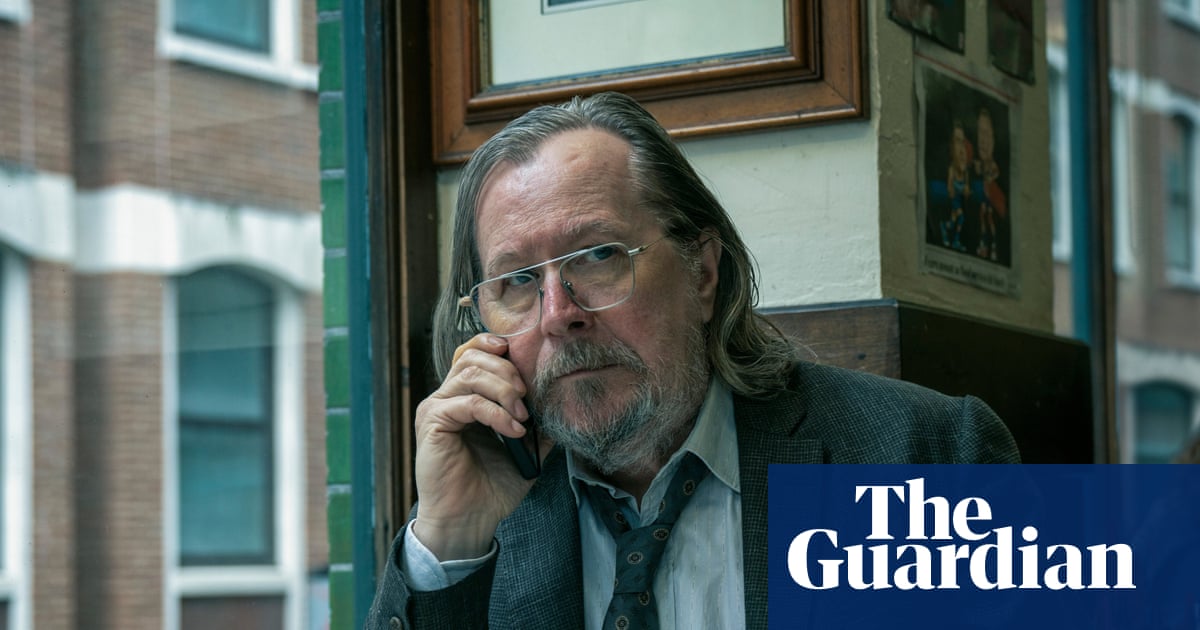At first, I cannot deny, the setup had me gritting my teeth. In response to George Floyd’s killing by a police officer in 2020, young white film-maker Rob Bliss released a YouTube video “Holding a Black Lives Matter Sign in America’s Most Racist Town” – a largely self-explanatory title, though the mayor and other officials of Harrison, Arkansas registered their objections to the accusation – which quickly went viral. White Man Walking, released to commemorate the fifth anniversary of Floyd’s death, takes things a step further. Or several hundred thousand steps, I suppose, given that it covers a 1,500-mile walk by Bliss from the civil rights museum in Mississippi, through the Deep South and on to Washington DC – arriving just before the 2020 election – while holding a Black Lives Matter sign and inviting people to walk with him.
The premise, Bliss’s apparent delicacy and ignorance (the N-word is a frequent part of the responses his presence elicits and he reels. “They say it so quickly, so easily. It’s hard to believe there are still people who hold such extreme views”) and self-righteousness (“Steering some southerners away from that way of thinking won’t be easy”) are initially off-putting. The opening minutes of the film are suffused with a sense of white saviourism and the kind of sanctimonious liberalism that did for the Democrats in the last election.
But. But. That first impression, that initial cringe soon disperses. Cometh the first hundred or so miles and an unrelieved tirade of abuse, cometh the man, and Bliss reveals himself to be a man of quiet courage and a literally walking definition of grace under pressure. “Why do you have to touch your gun while you talk to me?” he asks, in a spirit of apparently genuine inquiry, of a man who is recommending that the US “send them back to Africa”. He never rises to anyone’s bait – of which there is a virtually ceaseless supply, especially in the early stretches of his trek – or seeks to antagonise. He is clearly a gentle soul – but no pushover. He has a relatively long conversation with an older man who ensures Bliss that the BLM movement wants to bring white men down, advocate shooting children in the head and are using Bliss. They go back and forth. The man reveals that he is Jewish. Bliss says simply, “Then you should know better”, with so little heat that his interlocutor has little left to say, especially when Bliss likens what his opponents are doing to turning up at a breast cancer fundraiser to shout that other diseases matter too.
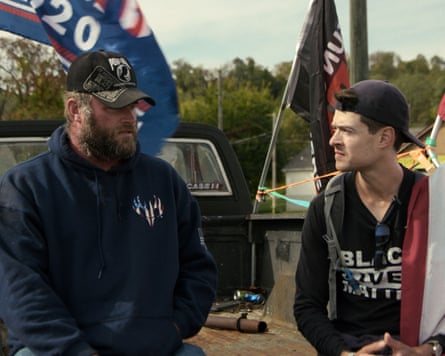
There are other times, in the heavily armed states through which he is passing, when he and his crew also rightly judge that discretion is the better part of valour and simply run. The whole film is, beneath its stated aim, a vivid demonstration of the profound difference between countries with gun control and those without. It changes everything. When Bliss goes a step further than simply carrying his BLM placard through Dalton, Georgia, and drapes a sash bearing a quote from the vice-president of the Confederacy stating that “the great truth that the negro is not equal to the white man” around a statue to Confederate general Joseph E Johnston, then sits down next to it to await people’s reactions he notes (again, though it’s hard to convey it in print, with no ego or braggadocio), “I could die today. Technically. I feel sick.”
On he goes, meeting some white and (more) black supporters of his undertaking, listening and learning good and bad things as he goes. This includes some pointed remarks from Chanelle Helm of the Louisville chapter of BLM (the town in which 26-year-old Black woman Breonna Taylor was killed in her own apartment by a white police officer). “I love this walking. [But] I don’t know what it’s going to do. What’s going to happen when you get to Washington? I’m hoping this walk gets you to understand that there is some bigger and more important work that’s going to hit you. I don’t know what that is for a white man.” It is Bliss’s silence thereafter, the lack of bluster or defensiveness, that marks him and the film out as worthy of note.
There is an unadorned honesty to the film that makes it admirable and not uplifting. You can see there has been a temptation to give in to schmaltz from time to time, but it is largely avoided. Instead, we have a portrait of an extraordinarily divided country but also a limning of some of the nuances that are lost in the culture, headline and clickbait wars. For example, the genuine disfranchisement there has been of the American working class, which has then been wrongly blamed on Black people and immigrants – by them and by politicians who benefit from stoking that hatred. By the end you come away feeling that in 60 days Bliss has engaged more and on better terms with Americans than either party did in the run-up to the past two elections. And that that is a large part of the reason that no one feels safe in their country any more.
-
Storyville: White Man Walking aired on BBC Four and is available on iPlayer now

 3 months ago
91
3 months ago
91
